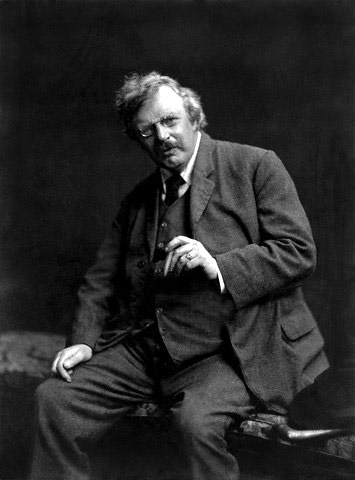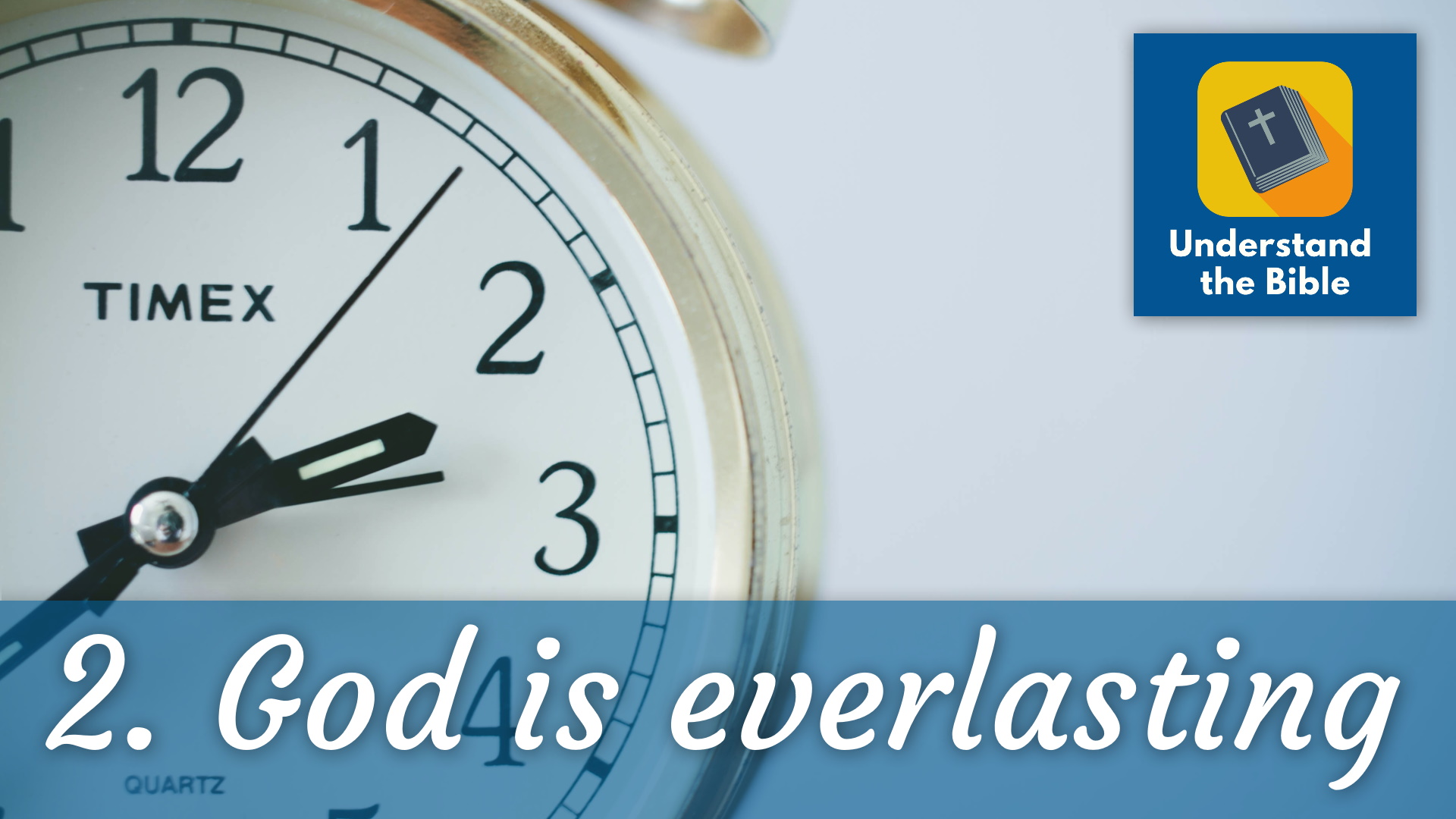In this fourth part of the Get to know God series, we’re going to be looking at God’s simplicity, or the fact that God is “without parts”. Now, simplicity is probably the most misleading word in the theological dictionary! It’s a very particular definition of simplicity which has very little to the way that we use the word in common speech. It is important, however, because I think it has a direct bearing on issues in our society today.
But let’s go into what simplicity is. Let’s start out by thinking about a jigsaw.
What is simplicity?
Think about a jigsaw…

Do you like doing jigsaw puzzles? I like doing them when I get the time – which is not very often. My youngest daughter went through a phase of doing one particular jigsaw about three times a day! The point of a jigsaw is to break up one picture into lots of little pieces. You have to put the pieces back together to form the original picture.
Now, imagine the picture is actually your life. Imagine you have to divide up your life into lots of little pieces. How will you split it up? Maybe you could have each relationship being a separate piece. Each relationship with a friend, each relationship with a family member – all separate pieces. Then maybe you could think about your hobbies and your interests. Each one of those could be a separate piece. Maybe you could even throw in your thoughts and emotions: your love, your friendship, your anger, and so on.
We human beings tend to think of ourselves a bit like that, don’t we? There are lots of different parts to us, and we can identify our different parts separately. But it’s not like that with God.
When theologians talk about God’s simplicity, they mean that he doesn’t have any parts. He just is. You can’t split God up into smaller parts.
When God revealed himself to Moses, he said: “I am who I am. This is what you are to say to the Israelites: I am has sent me to you.” God simply is. He’s indescribable! There’s a very good reason for this.
Euthyphro’s Dilemma
The philosopher Plato once posed a dilemma in his dialogue Euthyphro (which even has its own Wikipedia page). You could sum it up like this: “is something good because God wills it to be good, or does God will something because it’s good”?
It’s actually a bit of a poser, isn’t it? If you say that something is good because God wills it to be good, you make God out to be arbitrary. It’s as if God could just decide anything was good – even murder. But, if you say that God wills something because it is good, then you are saying that God is subject to a standard outside of himself. If there’s a standard outside of God, then he must not be the First Cause of everything. And, as we saw back in the first session, that would be a nonsense.
It’s a real dilemma: how do you make sense of it?
God is love

One of the most famous statements in the Bible is, “God is love” (1 John 4:8). A lot of people, even people who aren’t Christian, know it. But what does it mean?
Let’s think about it: Could you say of any human being “He or she is love”? Normally we would say something like “They are loving and kind”. We wouldn’t describe someone as love, we’d just say they were loving. It’s different with God: God is not simply loving – he is the very definition of love. God defines what love is!
When we say “so-and-so is loving” – what we really mean is, in some (small) way, they are being like the definition of love – like God himself. If you think about it, this makes perfect sense. Love isn’t an abstract concept! You could never sit down and simply define love. It can mean so many things in so many different contexts. We love:
- Our spouse / partner;
- Friends;
- Children;
- Country;
- Possessions;
- Community;
- Church…
The list could go on. Who can make sense of love in all of those ways? Only a God who is himself love, who can show us what it means to love in every situation.
But how does love relate to other emotions?
What about other emotions?
Let’s think specifically about anger. Anger is an emotion that people often think of as being very different from love. In fact, sometimes people think of anger as being the opposite of love. But is that necessarily true? I’m sure we can all think of bad examples of anger. Maybe times when we’ve been angry and have treated other people badly. But that doesn’t mean anger itself is necessarily a bad thing.
Let’s go back to my daughter. At the moment she is only three years old. Sometimes she does things which make me very angry – if you have any experience of three-year-olds, I’m sure you will be able to sympathise. But, here’s the thing. When she disobeys me, my anger is something which comes from my love for her: I want her to grow up to know what’s right and wrong. I want what is best for her. When she disobeys me, anger can actually be a loving response to correct and discipline her.
Proverbs 3:11-12 says:
My son, do not despise the Lord’s discipline,
and do not resent his rebuke,
because the Lord disciplines those he loves,
as a father the son he delights in.
When God disciplines us, it is actually love that he is displaying. It may not feel like it, but his discipline always comes from love.
And this is the fundamental point here: the emotions are inseparable. Anger is not something that you can have on its own, as if it’s different from love. Human anger can be a bad thing – but with God, anger is always an aspect of his love. You can’t divide up God’s love, anger, and so on – they’re just different aspects of the same thing!
This is what simplicity is: God isn’t made up of lots of different things like ‘love’, ‘anger’, etc. God is one thing. Let’s turn to think about why that’s good news.
Why is that good news?
God is constant

When I was younger we had a barometer at home. (In fact, my Dad still does). One of the things I loved about that barometer was, in the middle it would just say “change”. I always wondered why that particular pressure was labelled change but none of the others were! But we human beings can often be changeable, like that barometer. Someone can be kind one day (or even one moment), and then unkind the next. We’re not consistent.
God, on the other hand, is entirely consistent. The fact that God doesn’t change is something we thought about in session two – God is everlasting. (Actually, as we discover more, you’ll find that EVERYTHING about God is related to everything else). But this is really good news for us. If God doesn’t change, that means he is always love. And that means that God is always loving towards you and me.
This is how Jim Packer put it in Knowing God (which I wrote about on my personal blog):
… so far as he [the Christian] is concerned, God is love to him – holy, omnipotent love – at every moment and in every event of every day’s life. Even when he cannot see the why and the wherefore of God’s dealings, he knows that there is love in and behind them, and so he can rejoice always, even when, humanly speaking, things are going wrong. He knows that the true story of life, when known, will prove to be, as the hymn says, ‘mercy from first to last’ – and he is content.
Even when we can’t see it, even when we go through tough times, we know that God is acting out of love towards us. How amazing is that?
It shows us how to be whole people

G.K. Chesterton was a Catholic author and thinker. He once wrote:
The modern world is full of the old Christian virtues gone mad. The virtues have gone mad because they have been isolated from each other and are wandering alone. Thus some scientists care for truth; and their truth is pitiless. Thus some humanitarians only care for pity; and their pity (I am sorry to say) is often untruthful.
Even though Chesterton was writing a century ago, I think these words are still hugely insightful and true today. We live in a world where our values have become isolated and disintegrated. He gives the example of scientists and humanitarians caring for truth and pity, but there are many others. Let’s take human rights: we all have the right to freedom of religion. But what if the free expression of religion involves becoming a suicide bomber? Clearly, the right to the free expression of religion is in conflict with other people’s right to life!
There are many examples like this: the world is full now of conflicting rights. This is because we don’t have an integrated picture of what it means to be a whole person or a whole society. We don’t have a vision of what it means to hold all these things together.
That’s why God’s simplicity is good news: God does hold all these things together, perfectly. If we want a vision of how to integrate ourselves and our society, we need to look to God. Only he can do that.
God shows us what love is

The final thing is that God shows us what love is. This is important, because in our society love can be just about anything. Not too long ago there was a popular slogan, “Love is Love”. The idea is that it doesn’t matter who you love, or how you experience love – it’s different for everyone. We should just accept how someone chooses to define love for them: it’s an individual thing.
The problem is with this, ‘love’ can be anything that anyone wants it to be. There’s no baseline for love, there’s no control on what it is. If love is love, then love can be anything. And if love can be anything, then it’s meaningless.
Fortunately, because God is love, he shows us what love is. Love does have a definition. We can say some things are loving and some things are not loving, because we know what love is.
We know that love will:
- sometimes mean saying ‘no’ to things;
- sometimes mean making hard choices;
- always have someone’s best interests at heart.
Love is not down to us as individuals to define. God is love, and we do not have the liberty to redefine it!
Further Reading
I bet God’s simplicity is a topic that you’ve never come across before. Not many churches or Christian institutions teach it these days. But, as I hope we’ve seen, it’s an important topic and one which is relevant to us in the 21st century. If you’d like to find out more about it, you might like to have a look at one or two of the following:
- Simply God by Peter Sanlon. This is a very good introduction to all of the things we’re talking about in this series but in a lot more detail. (I should add – Pete was my tutor at theological college, he was one of the people who taught me these things in the first place).
- Divine Simplicity, an article on the Place for Truth website.
- None Greater, the undomesticated attributes of God, by Matthew Barrett. This is another accessible book about God and his attributes.
Strangely enough, I can’t find children’s songs this time about divine simplicity – maybe there’s a gap in the market?…





